IRAN NUCLEAR TALKS IN VIENNA WILL NOT RESULT IN A BETTER DEAL
- susank789
- Jan 31, 2022
- 6 min read
By Mark Dubowitz, Chief Executive - Foundation for Defense of Democracies
Jacob Nagel, Senior Fellow - Foundation for Defense of Democracies
PICTURED: Joe Biden and Neville Chamberlain whose policy of appeasing evil led to World War II and the death and suffering of tens of millions of people around the world. History taught us that peace is best achieved and attained through strength. This is a lesson we hope will be applied by Joe Biden and the Europeans - but this seems not to be the case as they continue to legitimize, enrich and embolden the Islamic Republic of Iran. It is well documented that the Iranian government is responsible for enormous human suffering - and for the intentional maiming and murder of hundreds of thousands of men, women and children through its human rights violations, regional aggression, and international terrorism . Iran has aided, perpetrated and plotted large scale terror attacks in the United States, South America and Europe; financed and facilitated Assad's genocide in Syria through the use of barrel bombs and chemical weapons; hangs gays on cranes in center squares; burned women's faces for refusing to wear a hijab; and executes and tortures gays, women, ethnic and religious minorities and those seeking freedom of speech and assembly. The regime also denies the Holocaust - while calling for the destruction of Israel and inciting violent antisemitism and anti-Americanism. [Note: picture and commentary by STOPIRANNOW.ORG - not the authors of this article - also STOPIRANNOW.ORG is responsible highlighting and underlining certain text in the article].
*****************************************************************************
The nuclear negotiations in Vienna continue. The Iranians are setting the tone and pace while the Americans struggle to keep alive the possibility of a deal. The Israelis—for whom these talks will have severe national security implications—are distracted by COVID surges and domestic politics.
There are two parallel paths out of Vienna. One is a return to the 2015 nuclear agreement, although it should be clear by now that this outcome is near impossible. The other is an interim arrangement in which Tehran agrees to a limited freeze on some of its nuclear activities in exchange for billions in sanctions relief.
Israeli leaders have requested that Washington put a stop to the Iranian strategy of slowing down the negotiations. That strategy only allows Tehran to develop its capabilities and draw closer to “nuclear threshold state” status. Once that occurs, no country will be able to prevent it from developing nuclear weapons. So far, the American response is feckless dialogue.
Biden’s Iran envoy, Robert Malley, is so eager to reach an agreement that he refuses to punish the Iranians for their violations of the 2015 agreement and the Nuclear Non-Proliferation Treaty. Nor will he punish them for their lack of cooperation with International Atomic Energy Agency (IAEA) inspectors. His top deputy Richard Nephew and two others reportedly left the team over disagreements with Malley’s strategy.
While the focus of the negotiations now is a return to the JCPOA, there is no going back to the deal that only temporarily kept Iran 12 months from a bomb’s worth of weapon-grade uranium, and then allowed its nuclear program to expand further. Today, even that 12-month target is no longer possible given the clerical regime’s nuclear advances. Tehran has shattered all temporary restrictions and can easily return to nuclear weapons development after key constraints in the 2015 agreement expire.
Most of that nuclear expansion—including the development of fissile materials, uranium enrichment up to 20 and then 60 percent, the operation of advanced centrifuges and the development of uranium metal for use in a nuclear warhead—have occurred since President Biden abandoned the pressure campaign of his predecessor.
A recent interim agreement proposed to the Iranians by Russia, with Mr. Malley’s consent, included a cessation of 60 percent enrichment (close to weapons grade) and the dilution or export to Russia of those enriched materials. The proposed deal permitted 20 percent enrichment to continue with no accumulation of new uranium material but permission to maintain existing stockpiles. The advanced centrifuges, installed in violation of the 2015 agreement, would not be destroyed and probably not even dismantled. It’s more likely they will remain installed under IAEA seals, ready to resume operation.
In return, Iran would get $8-10 billion in frozen oil money, primarily from South Korea and Japan. This would boost its accessible foreign exchange reserves from $4 billion to $12-14 billion, salvage its ailing economy and provide a war chest to support terrorist proxies. This is on top of recent Chinese purchases of Iranian oil that have spurred minor economic growth.
Then there is the question of the development of nuclear weapons systems. It remains unclear how long it would take for the clerical regime to explode a rudimentary device or develop a nuclear warhead to mount on long-range missiles or UAVs. Estimates range between six months for a test and one to two years for a nuclear-tipped missile.
As part of the current talks, Iranian negotiators demanded the closure of any new IAEA investigations into undeclared nuclear materials and a promise not to reopen the old ones. As a counter, the parties are discussing a “freeze” of the investigations. While it might be framed as a compromise, such a freeze would do serious damage to the IAEA’s ability to investigate Iran’s nuclear program. Such a decision also would undermine the “unprecedented and intrusive” monitoring and verification regime the Obama administration promised would result from the 2015 deal.
In addition to all these dangerous concessions, Mr. Malley has made no secret of his willingness to lift all sanctions “inconsistent with the JCPOA.” Indeed, he intends to lift all restrictions designed to counter Iran’s terrorism and missile proliferation activities, including sanctions on the Central Bank, the National Oil Company and many other financial institutions and entities related to the Islamic Revolutionary Guard Corps. The delisting of the IRGC as a foreign terrorist organization may also be in the offing.
Whether the Vienna process yields a “return” to the JCPOA or an interim agreement, it will be a “less for more” deal that contains far fewer nuclear restrictions than even the 2015 deal while yielding tens of billions of dollars in sanctions relief for Iran.
For those arguing this is a “less for time” deal, the reality is that time benefits Iran. Under any agreement, Iran would get a financial boost while key restrictions disappear. If the clerical regime bides its time, it can emerge with an industrial-size nuclear program, widely dispersed in multiple hardened facilities, with zero nuclear-breakout and easier, advanced centrifuge-powered, sneakout capabilities.
To make matters worse, sanctions relief will harden the Iranian economy against possible future sanctions. And Tehran will convert the coming windfall to build more lethal conventional military and missile capabilities, while funding its terrorist proxies.
Whether the interim agreement reportedly offered to Iran was an American or Russian proposal is irrelevant. The U.S. negotiating team approved most of it. The Iranians rejected it on the assumption that they will get better concessions as U.S. negotiators grow increasingly desperate. Tehran can always come back to the Russian plan as a fallback.
Any agreement coming out of Vienna will be worse than the disastrous 2015 deal. It will send a message to the markets that doing business with Iran is acceptable. Tehran will “launder” its violations while the regime legitimizes its nuclear expansion. The interim agreement calls for three to six additional months to reach another deal. But temporary agreements can become permanent, especially with the Biden administration distracted by other foreign policy crises in Ukraine and China.
Israel has asked the Biden administration to return to a maximum-pressure policy and to bolster the credibility of its military threat. That’s falling on deaf ears. The Iranians believe the U.S. is weak and will not attack. They further believe Israel does not have the ability to attack alone.
The coming weeks will be decisive. In Congress, Republicans have made clear that only a comprehensive treaty that permanently blocks Iran’s pathways to nuclear weapons will get bipartisan support. Without such a treaty, they vow to reimpose all sanctions and return to the policy of maximum pressure when power shifts in Washington.
Israel, however, cannot afford to wait. It is increasingly clear that unless significant steps are taken soon, no country will be able to stop the mullahs from developing nuclear weapons.
Brig. Gen. (res.) Professor Jacob Nagel is a senior fellow at the Foundation for Defense of Democracies and a visiting professor at the Technion Aerospace faculty. He previously served as acting national security adviser to Prime Minister Benjamin Netanyahu and as head of the National Security Council. Mark Dubowitz is FDD’s chief executive. An expert on Iran’s nuclear program and sanctions, he was sanctioned by Iran in 2019. Follow Mark on Twitter @mdubowitz. FDD is a nonpartisan research institute focused on national security and foreign policy.

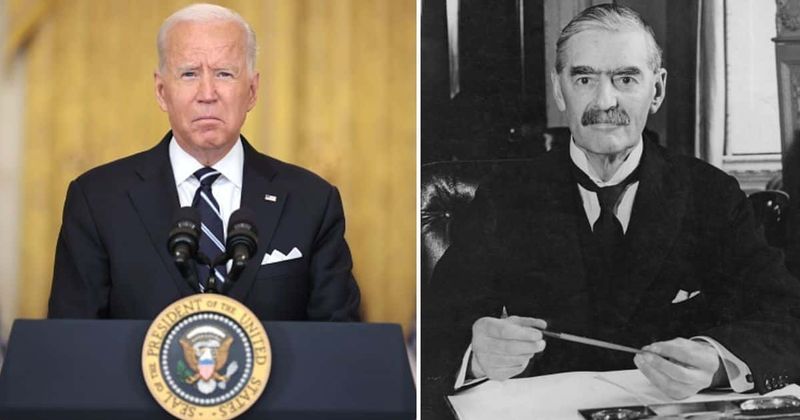
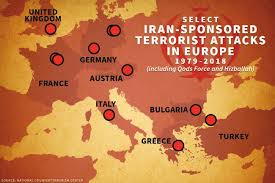

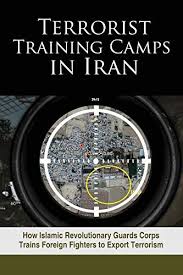

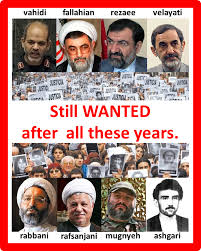

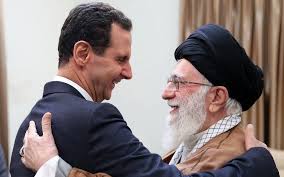





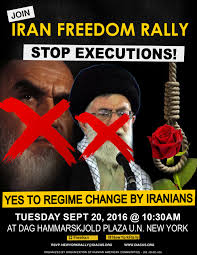




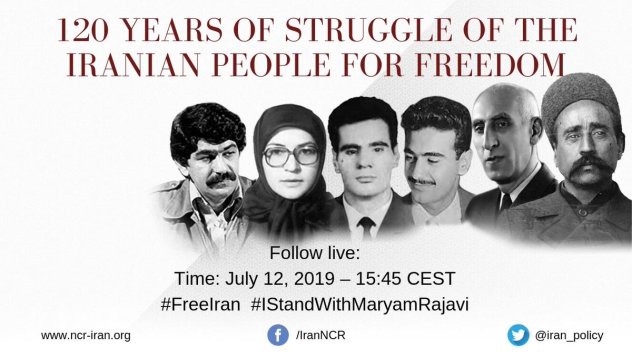
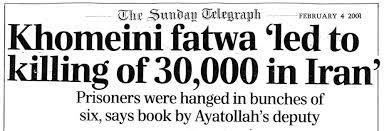








Comments